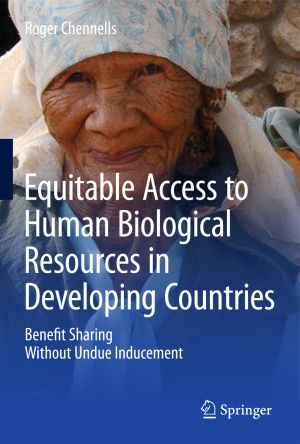Benefit Sharing for Human Genetic Resources: Achieving Equity for Indigenous Peoples and Other Vulnerable Populations
ISBN13: 9783319197241
Published: July 2015
Publisher: Springer-Verlag
Country of Publication: Switzerland
Format: Hardback
This is a Print On Demand Title.
The publisher will print a copy to fulfill your order. Books can take between 1 to 3 weeks. Looseleaf titles between 1 to 2 weeks.
The main question explored by the book is: How can cross-border access to human genetic resources, such as blood or DNA samples, be governed in such a way as to achieve equity for vulnerable populations in developing countries? The book situates the field of genomic and genetic research within global health and research frameworks, describing the concerns that have been raised about the potential unfairness in exchanges during recent decades. Access to and sharing in the benefits of human biological resources are aspects not regulated by any international legal framework such as the Convention on Biological Diversity, which applies only to the exchange of plants, animals and microorganisms, as well as to associated traditional knowledge. Examples of genetic research perceived as exploitative are provided in order to illustrate the legal vacuum concerning the global governance of human genetic resources.
The main conclusions drawn from the legal and ethical analysis are:
- Benefit sharing is crucial in order to avoid the exploitation of developing countries in human genetic research.
- With functioning research ethics committees, undue inducement is less of a concern in genetic research than in other areas of medical research (e.g. clinical trials).
- Concerns remain over research involving indigenous populations; accordingly, recommendations are provided.
In drawing these conclusions, the book addresses in detail a highly pressing topic in global bioethics and international law. In this regard, it combines bioethical arguments with jurisprudence, in particular with reference to the law of equity and the legal concepts of duress (coercion), unconscionable dealing, and undue inducement.
